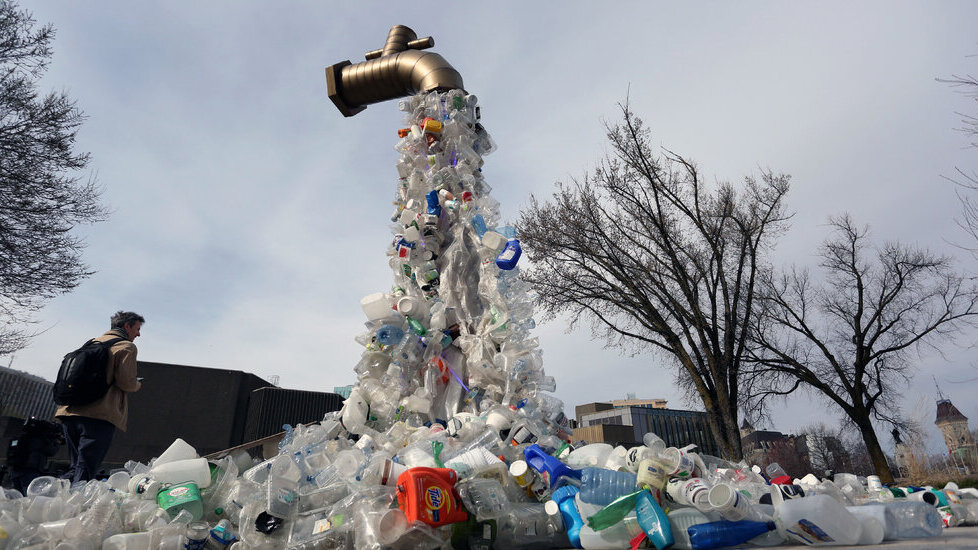This is the best summary I could come up with:
Ahead of the latest round of talks, European researchers published a database of more than 16,000 chemicals plastics can contain, many of which have been linked to cancer risks and damage to the human immune system.
In particular, the industry is pushing back against the possible inclusion in the treaty of caps on global plastic production, an approach favored by a broad coalition of nations at the talks, which resumed on Tuesday in Ottawa.
Recycling has failed to stem the flow of plastic waste that is piling up in landfills, entering the world’s rivers and oceans, and breaking down into tiny particles that have made their way into drinking water supplies and are detectable in human blood.
It’s part of a slew of new rules on planet-warming pollution the White House issued recently as it works to meet the nation’s goal of cutting carbon emissions by about half from 2005 levels by the end of the decade.
It also paused the permitting process for new liquefied natural gas export facilities in order to analyze their impact on climate change, the economy and national security.
Writing in The Guardian, the finance ministers of Germany, Brazil, South Africa and Spain argue for a 2 percent wealth tax on billionaires to tackle inequality and the climate crisis.
The original article contains 1,159 words, the summary contains 214 words. Saved 82%. I’m a bot and I’m open source!
Plastic suuuuucks
The problem isn’t just plastic, it’s the long supply chains. Let’s take juice bottles, you stop using plastic, what do you use? Single use glass isn’t good either, it takes a lot of energy to recycle it, way more than plastic (not that we are actually able to recycle plastic), metal cans are probably a bit better but they also have their energy costs. Reusable glass is the best, but it still has to be moved by heavy truck back and forth from the bottling plant.
We need to start rethinking distribution.
You should reuse glass bottles first, not recycle them after 1 use.
Nah… We tried that. It wasn’t practical. All shops were required to collect glass bottles from customers. You then had to transport them to cleaning facilities. Before transporting them to the breweries. Then back to the stores. And you had to have special crates for transporting the bottles. Since the number of bottles received wasn’t the same as the number of bottles sold, you also had to distribute those crates between stores.
Here we ended up recycling all the plastic and aluminium bottles. They are shredded in the store to make transport efficient. Then transported to the recycling facility. Here about 90% of all bottles are recycled.
You clearly didn’t read all of my comment before replying


